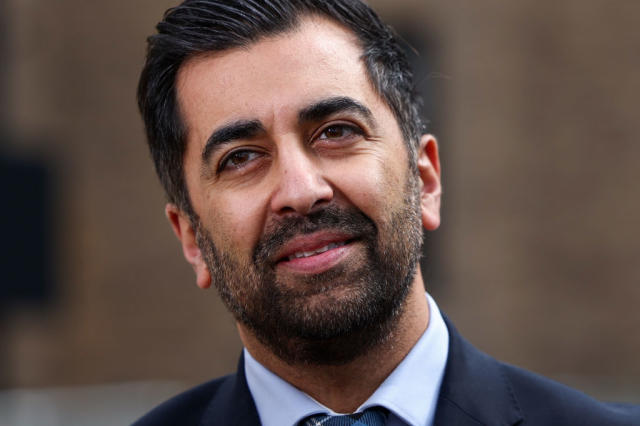
EDINBURGH, April 30, 2024 (BSS/AFP) - The Scottish National Party (SNP)
opened nominations Tuesday for a new leader, setting up a potentially
fractious internal fight, after First Minister Humza Yousaf said he was
quitting.
Yousaf, 39, announced Monday he would resign once a successor has been chosen
to lead the SNP and nation of 5.4 million people, which has a devolved
government responsible for domestic policy areas.
He had only been in the job for just over a year, but was forced out after
ditching his junior coalition partners in a row over climate policy.
Candidates to replace him have until Monday next week to declare they are
standing, with senior SNP figures backing former deputy first minister John
Swinney for the top job.
Swinney, 60, who led the SNP from 2000 to 2004, told journalists in London
that he was "actively considering" putting himself forward.
Meanwhile, others have voiced support for former finance secretary Kate
Forbes, who has not yet indicated if she will run.
Forbes, 34, finished a close second to Yousaf in the SNP's last bitterly
fought leadership contest, prompted by the shock departure of Nicola Sturgeon
after eight years at the helm of the pro-independence party.
However, her socially conservative views are seen as a potential hindrance,
in particular because she will need the support of another party to either
form a governing coalition or pass pieces of legislation.
The new SNP leader, expected to be in place by early June at the latest, will
need enough votes in the 129-seat Scottish parliament to be elected first
minister.
The party is currently two votes short of an overall majority, so will rely
on the support of some opposition lawmakers, such as the Scottish Green
Party's seven pro-independence members.
- Westminster watching -
The Greens announced last week they would not support Yousaf in a leadership
confidence vote after he scrapped their power-sharing pact, prompting his
eventual decision to quit.
Scottish Labour -- the third largest party in the devolved parliament -- has
indicated it will pursue a no-confidence vote in the SNP's government
alongside other anti-independence parties, in a bid to force an election in
Scotland.
Scots opted against independence in a referendum in 2014, and support for the
cause has largely stagnated at around 46 percent in recent years, according
to polls.
The ructions in the SNP, which has dominated Scottish politics for nearly two
decades, are being closely watched in London, ahead of a UK general election
later this year.
It currently holds 43 seats in the UK parliament, with the main Labour
opposition hoping for a resurgence in its former stronghold north of the
English border to help it win an outright majority.
At the 2010 general election Labour won 41 Scottish constituency seats
compared to the SNP's six, but saw its support crater in subsequent contests
in 2015, 2017 and 2019.
However, Labour has staged a recovery of sorts in recent years, as the SNP
has struggled with its domestic record and to keep independence as voters'
top issue.
New YouGov polling published Monday indicated that Labour is now level-
pegging in Scotland with the SNP, both on around a third of the vote.
If repeated on election day, it could see Labour potentially win back dozens
of Scottish constituencies.
Prime Minister Rishi Sunak has said a contest will be held in the second half
of 2024, with polling over the last two years consistently suggesting his
ruling Tories are set for defeat.